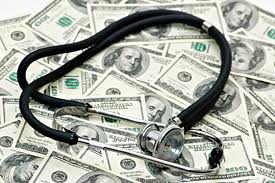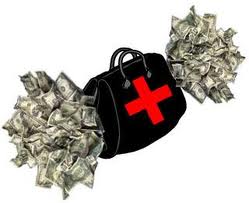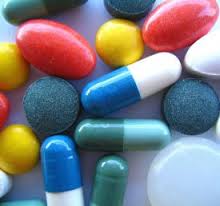Pharmaceutical and Medical Device Compliance: Domestic and Foreign Bribery
 Pharmaceutical and medical device companies have a raw deal when it comes to domestic and foreign bribery. On the domestic front, they have to comply with the Anti-Kickback and Stark laws. In the international sphere, they have to worry about the FCPA. They are heavily regulated in the US and overseas. As a result, compliance can be a challenge.
Pharmaceutical and medical device companies have a raw deal when it comes to domestic and foreign bribery. On the domestic front, they have to comply with the Anti-Kickback and Stark laws. In the international sphere, they have to worry about the FCPA. They are heavily regulated in the US and overseas. As a result, compliance can be a challenge.
The domestic anti-bribery statute does not always match up with the FCPA. Many companies find it easier to just apply the applicable industry codes for compliance in the domestic and international fronts. The challenge is further complicated by stringent requirements in specific US states (Massachusetts and Vermont), as well as individual countries overseas.
One big difference between the FCPA and standard domestic and local foreign regulation is the affirmative defense for bona fide reasonable expenditures made for promotional purposes. This is an important provisions which permits global companies to engage in marketing and promotional activities.
In response to aggressive domestic enforcement of the Anti-Kickback Laws, companies have had to scale back medical education and conference sponsorship programs because of the history of abuse. Over the last several years, the pharmaceutical and medical device industry has drastically reduced the amount of medical education spending and are subject to tight regulations to make sure that such spending is not aimed at “inducing” doctors and medical officials to purchase their products.
On the international side, the enforcement and regulation of medical education activities is far less rigorous. Companies face a very challenging dynamic because many doctors are hired and paid by foreign governments and are not as well compensated as doctors in the United States. As a result, they have a greater incentive to demand payments and compensation from wealth pharmaceutical and medical device companies.
As reflected in the Pfizer settlement last year, physicians demanded and were awarded sponsorships to medical conferences in exchange for assurances they would purchase specific numbers of products from Pfizer. Such an interaction, if it occurred in the United States, would probably lead to a criminal prosecution of the individual participants.
The expectations of doctors and medical officials overseas are different from the expectations (due in part to strict regulation) in the United States.
 Domestic enforcement will be increased with the implementation of the Physicians Sunshine Payment Act reporting requirements for pharmaceutical and medical device companies. Under the regulations, with certain exceptions, pharmaceutical and medical companies will have to report on payments to physicians and healthcare providers. This only applies, for now, domestically. Prosecutors will scour these reports looking for patterns and potential Anti-Kickback violations.
Domestic enforcement will be increased with the implementation of the Physicians Sunshine Payment Act reporting requirements for pharmaceutical and medical device companies. Under the regulations, with certain exceptions, pharmaceutical and medical companies will have to report on payments to physicians and healthcare providers. This only applies, for now, domestically. Prosecutors will scour these reports looking for patterns and potential Anti-Kickback violations.
For the industry, risks are rising even higher both domestically and overseas. For compliance officers, it all means more headaches, more risk and more stress.














